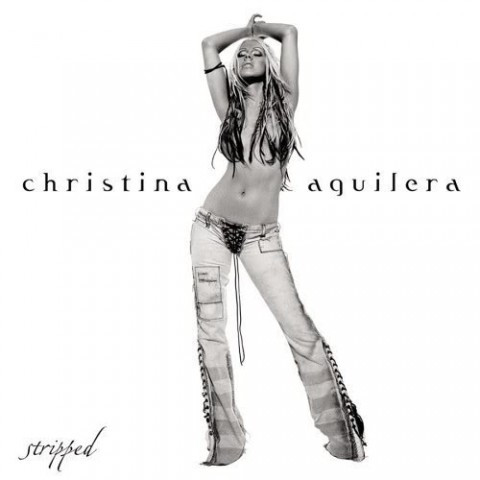“I’m gay.”
It’s difficult to describe the breathless tension that precedes such a simple sentence—a first-person contraction introducing a three-letter word. I, me, myself, am, in a state of being, gay: a homo, a faggot, everything the other boys ever told you you were. To attach such a familiar preposition to something so abstractly dangerous is a terrifying undertaking.
Equally difficult to explain is the journey this statement takes, this I’m gay, from a trembling whisper to your best friend in a parked car to an impassioned shout in a parade, to an off-handed statement of fact to a complete stranger.
One evening in eighth grade I went to Borders with my family with the unexpressed intention of buying Christina Aguilera’s Stripped album. I feigned browsing for twenty minutes, and eventually made my way to the check-out with the jewel case and $20 of saved allowance. I handed the CD to one of the girls behind the counter who looked at it, looked at me, and said, “This isn’t for you, is it?” Then they laughed.
My 13-year-old face flushed. “No,” I said, and tried to smile at the apparent ridiculousness of the idea. When the barcode wouldn’t scan, I figured God was trying to tell me something and scurried away, muttering, “Nevermind.”
Certainly, not all of us have had it so tough. Some dated the quarterback while others spent eighth period plotting a bully-free route to the bus home. Some came to terms with themselves in high school or college and some have been so enviably self-aware since learning long division.
It’s hard not to envy these, for whom high school was acne and Homecoming and Spin the Bottle instead of isolation and self-loathing, but it doesn’t help anything.
For all our range of experience, some better than others, LGBTQ people are alike in that we have each been confronted with the demon of ourselves. Somehow, at some point, we have looked at ourselves and seen someone so fragile that it’s difficult to feel anything but pity and defeat for the face staring out of the mirror.
Even as I write this, I’m reminded of Christina Aguilera’s “Beautiful” music video, its well-intentioned melodrama uniting freaks and weaklings in a tragically determined front of soldierers-on, championed by no less than the stud-nosed, raven-slash-golden-haired X-tina. The good-natured irony with which I can recall every shot of the video reminds me how far I’ve come.
As a senior in high school, with the intention of sticking it to a number of people and entities, not the least of which was Borders, I finally bought Stripped. I marched up to the counter at Barnes and Noble, proudly handed my selection to the boy at the register and was immediately disappointed by his lack of disgust. Indeed, he seemed entirely indifferent to the personal breakthrough I was having.
Still, it didn’t matter. It wasn’t about him. It wasn’t about the girls at Borders, or the boys who threw away my t-shirt after gym class. It was about me.
Coming out, being out, is a process of making peace. The world is changing, slowly—too slowly for us to live by its standards. Making peace is not about complacency in the face of injustice; it’s about being okay enough with you to stand up for yourself. It’s one thing to chase controversy from the other side of the rapids, and entirely another to steer yourself through them. How drastic a change, and yet how imperceptible.
In retrospect, that Stripped seems to have been a major turning point in my life seems entirely appropriate. From “Beautiful” and “I’m OK” to “Loving Me 4 Me” and “Fighter,” Christina gets me.
And, really, what more could we ask than to be gotten? In the words of so many others who know, it gets better.
(Image via.)











Great article, John!
I agree with Claire! You wrote this beautifully John.